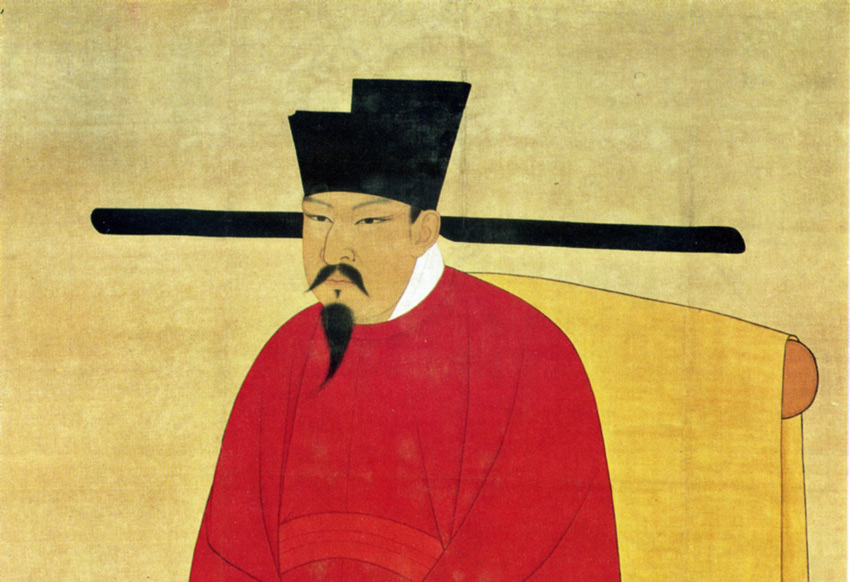In “Does America Still Have What It Takes?,” Charles Murray soberly registers the decline of certain central cultural characteristics that historically have sustained America’s success as a global center of progress and innovation. His warnings on these matters apply to the democratic West as a whole, where the “Europe syndrome,” as he aptly calls it, is a widespread affliction. But what about Israel? Obviously, this “start-up nation” is not competing with the U.S. for world dominance in innovation; but is there anything to be learned from a comparison between the two countries and their respective cultures?
Let me start with Murray’s list of “enabling conditions” for innovation in science and technology, of which the first is national wealth. Relatively speaking, Israel’s public debt is now at a reasonable level, having been reduced from 275 percent of GDP in the 1980s to 70-80 percent of GDP more recently; by comparison, in the same period, U.S. national debt moved from 40 to over 100 percent of GDP. (Readers of Hebrew can learn more here.) Similarly with other enabling conditions named by Murray, including the high status accorded to innovators, the existence of cities or other “centers of human capital,” the freedom to invent. On all of these indices, Israel’s situation isn’t bad at all.
What about the larger, cultural context, the surrounding milieu of attitudes and beliefs that, in Murray’s telling, both foster and drive the spirit of innovation within individuals and societies?
Israel is a highly ideological place. It sometimes seems that every Israeli is fanatically devoted to one or another ideology that he regards as his personal property. For some, that ideology is Judaism; for others, it’s the overarching imperative to establish a “model society”; still others dream of creating a “new Middle East”; and on it goes. Those lacking a positive ideology can always find refuge in a negative one, blaming all their discontents on the settlers, the ultra-Orthodox, the Arabs, the Left, the Right. . . .
This ideological surfeit is no coincidence. It is a direct legacy of Israel’s birth after World War II when a bedrock conviction in the rightness of the Zionist cause was needed simply in order for the country to survive. In its first decades, as, against overwhelming odds, Israelis were engaged in a desperate struggle for their national existence, that same Zionist spark, in the form of deep personal commitment to the security and flourishing of the state, provided the sense of “purpose and autonomy” that Murray names as a dual prerequisite for igniting the “fires of innovation” within a society.
Israelis striving to excel in those years derived a deep sense of purpose from contributing to their as-yet-insecure state. For its part, Israeli society knew how to appreciate their contributions, to condone their eccentricities (if they had them), and to give them backing and honor.
Like all honeymoons, however, this one didn’t last forever. First, power corrupts: the rewards granted by the state became disproportionate, morphing into spoils lavished by the government on party apparatchiks and lobbyists of different shapes and sizes. Second, just like America and Europe if on a much reduced scale, Israel today, even as it enjoys its relative economic prosperity, is encountering the price to be paid for prosperity in terms of cultural and personal mores.
An Israeli friend in high-tech related his contrasting impressions of visits to French and American companies. In France, he found exceptionally gifted engineers who were knowledgeable, committed, and creative—until, that is, 5:00 in the afternoon or the eve of one of the many vacations available to them; then they disappeared. In the U.S., the engineers in the companies he visited were primarily from India. As individuals, they were as gifted as those in France, but they worked sixteen hours a day, took few if any vacations, and did not profess to be in the least disadvantaged.
My friend reported that, personally, he identified with the French. He, too, wanted to be with his wife and children at the end of the day, and to take vacations. But, overall, the French are out of the race. In the world of high-tech, speed and flexibility rule; a delay of two weeks in getting a product to market can make the difference between success and failure.
Israel stands somewhere in-between these two models. Although in general the economy suffers from relatively low workforce productivity, the high-tech sector is an exception. For one thing, the great immigration from the former Soviet Union in the 1990s brought waves of educated personnel with a strong work ethic and a clear affinity for technology. For another, as Dan Senor and Saul Singer argue in Start-Up Nation, military service, especially in elite units, plays a central role in shaping the mentality of Israeli high-tech workers. In the army, the soldier learns to be “mission-focused,” not to watch the clock, and at times assumes a level of personal responsibility that has no equivalent in civilian life. Bringing these qualities into the world of innovation produces clear payoffs. Young Israelis have launched large and complex projects with impressive speed, justifying the high degree of foreign investment in this sector of the economy.
Next, creativity. For Israelis, necessity—often, immediate national necessity—is indeed the mother of invention. Thus, Israel specializes in water-saving agriculture, security and weapons systems, and information technology. For better or worse, none of these is likely to fade in importance or urgency any time soon. Here, too, military service provides good training, as, contrary to stereotype, elite military units are constantly called upon to display creative problem-solving of the kind that budding scientists and engineers are much less likely to learn in a university setting.
One could say that Israel has benefited twice over from its existential struggle. That struggle imparts a sense of purpose to those who contribute to the security of the state while also developing important innovative skills. At the same time, living under threat also imparts a sense of realism that contrasts refreshingly with the moral and intellectual relativism that Murray rightly decries in the West. To be sure, Israel is not immune from this disease, but it is far less pervasive than elsewhere.
Again in contrast to the U.S. and much of Europe, secularization still lags in Israel. There are many reasons to rejoice at this state of affairs, although frankly it may not be so great for a culture of innovation. Judaism doesn’t object to self-fulfillment, but it doesn’t place it at center stage among life’s goals, much less make a cult of it. On the other hand, for believing Jews (and Israeli citizens), it also insists on many respites from work: not just the weekly Sabbath but also much of the month devoted to the High Holy Days and the festival of Sukkot, and the extended vacation of Passover in the spring. There is personal and social good in so much rest—but also a price to be paid in the global competitive economy.
In sum, and on balance, Israel’s situation measures up favorably against Murray’s metrics. Indeed, while the U.S. in his telling is becoming more “European” – moving from individualism to statism – Israel is moving in the opposite direction. In its youth, its most enterprising citizens had to contend with the suffocating hand of socialist institutions and a spirit of excessive communitarianism. Since the 1980s, this has changed. From a state where all creative energies were invested in defense and settlement, it is fast becoming a strong, free society where individuals can contribute to a whole host of new fields not directly tied to survival.
But every change carries with it new problems, and certain old problems have likewise persisted into the present. To conclude, I’ll note four challenges that seem central in light of Murray’s penetrating analysis.
The economic challenge. This can be split into two parts. The first is regulation: Israel suffers from an extremely complex web of rules and regulations that primarily harm small and medium-sized businesses. These form a critical component of Israel’s overall financial health: in 2012, some 450,000 small businesses generated 45 percent of GNP and employed 55 percent of the labor force. Yet they are an abused sector of the Israeli economy, heavily taxed and politically ignored. When it comes to the ease of doing business, or the cost of starting a business, Israel fares very poorly compared to the OECD and, on some measures, even compared to the rest of the world (see here for more). Niall Ferguson recently wrote that compared with England, it’s hard to start a business in the U.S.; he clearly hasn’t tried to start one in Israel. Any Israeli politician who made it his mission to reduce the huge tax and regulatory burdens on business would render a great service to his country.
The second part of the economic challenge is well known: the low rate at which ultra-Orthodox (haredi) men and Arab women participate in the workforce. This issue transcends economics; solving it depends on a much more complex process of cultural change inside communities that have long seen themselves as embattled minorities.
The political challenge. The positive trends that I’ve outlined are easily reversible, and Israeli politics is a fickle battleground. Today’s Israelis remain very receptive to arguments based on considerations of “social justice,” and their state-run educational system has trained them to look to government as the solution to all problems. If an Israeli prime minister were to say, as President Obama said, “you didn’t build that,” most would not object. At a time when the shockwaves of global economic problems are, somewhat belatedly, reaching Israel too, it’s easy to invoke the populist argument in favor of nationalization and redistribution of wealth and against the free market.
The educational challenge. Anyone who wants to tell the medium- and long-term future need only look at today’s children. The picture isn’t pretty: Israel faces the worst crisis in scientific and technological education in its history (see here [Hebrew]). The reason once again is that all the eggs are in one basket—namely, the state, which has made a royal mess of things. This is not the place for an extended discussion, but one big central problem is the government’s determination to wage war against private education. Although it borders on the irrational to think that any government ministry can successfully run a system with more than a million and a half students and hundreds of thousands of teachers, this fatal conceit has so far proved unbudgeable. As long as it remains so, it will be difficult if not impossible for education in Israel to recover.
The cultural challenge. Individualism is a complex and nuanced phenomenon, easily misunderstood. Israel needs to complete the transition from its formerly excessive communitarianism to a model that better balances the needs of individuals and communities, but it is hard to achieve such a balance without first swinging all the way to the other extreme. Unfortunately, the post-modern conception of individualism, according to which all forms of self-fulfillment are not only legitimate but equal, can cause as much harm to Israel’s social fabric as it has done elsewhere. If freedom comes to mean nothing more to Israelis than licentiousness and nihilism, severed from individual and communal responsibility, from social institutions and accepted norms of behavior, their uniquely moral society will quickly fall apart.
Israel’s situation today is much better than it was 40 years ago. But Murray provides an important warning from the experience of the modern West. Affluence and success exact a cost—on the one hand, an ever-growing reliance on the “nanny state”; on the other hand, moral and societal disintegration. To navigate wisely, Israelis will need to leaven the values of individual freedom and self-fulfillment with their inherited ethic of mutual help and civic responsibility, political participation, attachment to tradition and religion, and national pride. By achieving a balance of these elements, they might just enable a culture of innovation, and much, much more, to flourish in the Jewish state.
____________________
Ran Baratz is professor of ancient philosophy at Shalem College, founder and director of the Israeli nonprofit El Haprat, and founding editor of Mida, a Hebrew-language website of news and opinion. He is executive director in Israel of the Tikvah Fund’s program in political thought, economics, and strategy.
More about: Charles Murray, innovation, Israel, Middle East, national wealth, Secularization, statism







